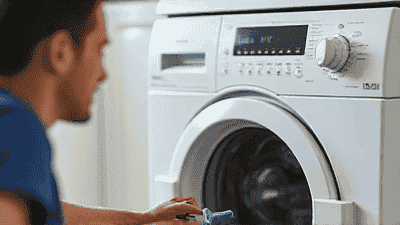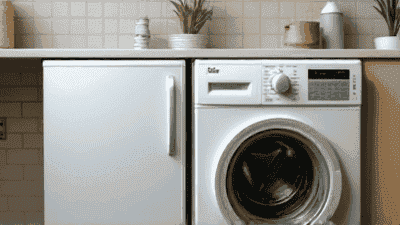The Role of Filters in Appliance Maintenance: How Often to Change Them



Appliances are integral to maintaining a comfortable and functional home. From ensuring clean clothes to providing fresh air, appliances make our lives easier and more efficient. Yet, many residents underestimate the importance of routine maintenance when it comes to these devices, particularly the role of filters. Filters are essential components in various appliances, as they help maintain optimal performance, improve indoor air quality, and prolong the life of the equipment. Understanding the significance of filters, recognizing when they need to be changed, and adhering to a proper maintenance schedule are vital for every homeowner. In this comprehensive article, we will explore the various types of filters found in common household appliances, their functions, and guidelines on how often you should change them.
Filters are physical barriers that prevent the passage of unwanted particles, debris, or impurities within an appliance's system. They come in various forms and sizes and are primarily used to enhance the efficiency of appliances while promoting safety and hygiene in the home. Filters can be found in appliances such as refrigerators, air conditioners, furnaces, humidifiers, dishwashers, washing machines, and dryers.
Enhancing Efficiency: Filters help appliances operate effectively by preventing debris and contaminants from clogging critical components. A clean filter allows systems to work more smoothly and use energy more efficiently.
Improving Air Quality: In HVAC systems and air purifiers, filters play a crucial role in enhancing indoor air quality. They capture dust, allergens, and pollutants, ensuring the air you breathe is clean and safe.
Protecting Components: By filtering out harsh particles, filters help protect internal components of appliances. This protection helps prevent damage, ensuring the appliance remains operational for a more extended period.
Preserving Energy Use: Clogged or dirty filters force appliances to work harder, leading to increased energy consumption. Regularly changing filters can help reduce energy costs.

Understanding which appliances feature filters will help you manage their maintenance better. Below are some highlighted appliances where filter care is essential.
Air conditioners and HVAC systems use filters to clean and circulate the air in your home. They capture dust, pollen, pet dander, and other airborne particles. Typically, these filters come in various forms, such as:
Refrigerators often come equipped with water and air filters. These filters are responsible for keeping the water clean and maintaining air quality inside the fridge. Some examples include:
Dishwashers contain filters that trap food particles, preventing them from recirculating during wash cycles. Filters in dishwashers help ensure that dishes come clean every time.
Washing machines use filters, commonly referred to as lint filters or coin traps, to catch lint and debris during the wash and rinse cycles. Keeping these filters clean prevents blockages and ensures efficient drainage.
Dryers feature lint screens or filters that collect lint and debris released from clothing during the drying process. Clean lint filters are vital to ensuring safe and efficient drying.
Humidifiers use filters to trap impurities from water and improve the quality of moisture released into the air. This is crucial for maintaining healthy indoor humidity levels.
The effectiveness of filters depends on their cleanliness. Here we will discuss how to determine when to change filters based on the type of appliance.
Change Frequency: It is generally recommended to replace HVAC filters every 1 to 3 months. However, various factors contribute to how often these filters should be checked and changed:
Signs It’s Time to Change:
Change Frequency: Water filters in refrigerators should typically be changed every 6 months, while air filters can be replaced every 6 months to 1 year.
Signs It’s Time to Change:
Change Frequency: The filter in a dishwasher should ideally be cleaned regularly and replaced every 6 months to 1 year, depending on use.
Signs It’s Time to Change:
Change Frequency: Washing machine filters should be checked every few months, with cleaning performed as necessary.
Signs It’s Time to Change:
Change Frequency: Clean the lint filter after every load. Routine maintenance of more in-depth components should be done every 6 months to 1 year.
Signs It’s Time to Change:
Change Frequency: Humidifier filters should be replaced every 1 to 3 months, depending on usage and water quality.
Signs It’s Time to Change:

To ensure that you stay on top of filter maintenance, consider the following best practices:
Maintain a calendar or checklist with reminders for when to check or change each filter. By keeping a record, you can better manage the care of all your appliances.
If your appliances have multiple filters, label them with dates of installation and replacement recommendations to promote awareness and timely changes.
Invest in high-quality filters that meet or exceed industry standards for your appliances. High-quality filters are more effective in trapping particles and can often last longer than cheaper alternatives.
If appliances are used frequently, they may require more regular maintenance. Pay attention to your household routines and adjust filter replacement schedules accordingly.
Stock up on filters so that you're prepared for replacements when the time comes. Having spare filters can help you avoid delays in swapping them out.
Ensure that all family members understand the importance of filters and encourage them to participate in monitoring and management. This shared responsibility can help ensure awareness and maintenance consistency.
Refer to user manuals for specific filter maintenance guidelines. Manufacturers provide crucial information about the type of filters used, replacement intervals, and maintenance tips.
Neglecting to change filters can lead to various negative consequences, including:
Dirty or clogged filters can lead to reduced airflow, causing appliances to work harder and less efficiently. This can lead to poor performance, such as insufficient heating or cooling.
As appliances struggle to perform due to clogged filters, they consume more energy, leading to increased utility costs. Regular filter changes can help maintain efficiency and minimize energy waste.
Failing to replace filters on time can cause excessive wear and damage to internal components. Ultimately, this can lead to appliance malfunctions and a shorter lifespan for the device.
In some cases, neglected filters can pose safety risks. For instance, clogged dryer vents can lead to a fire hazard, while dirty air filters can contribute to poor indoor air quality, affecting the health of residents.
Some appliance warranties may stipulate that regular maintenance, including filter changes, is necessary to keep the warranty valid. Neglecting this maintenance could void coverage for repairs.

Filters play a vital role in the operation and maintenance of household appliances. By understanding the types of filters found in common devices and recognizing the importance of regular changes, residents can ensure their appliances operate smoothly, efficiently, and safely.
Develop a proactive maintenance routine that includes monitoring filter conditions, adhering to replacement schedules, and promptly addressing any signs of wear or degradation. By doing so, you not only extend the life of your appliances but also enhance the air quality in your home, reduce energy costs, and promote a safe living environment.
Making the effort to properly care for filters is an investment in your home and lifestyle. Take the time to prioritize appliance maintenance, and enjoy the benefits of a well-functioning and comfortable home.